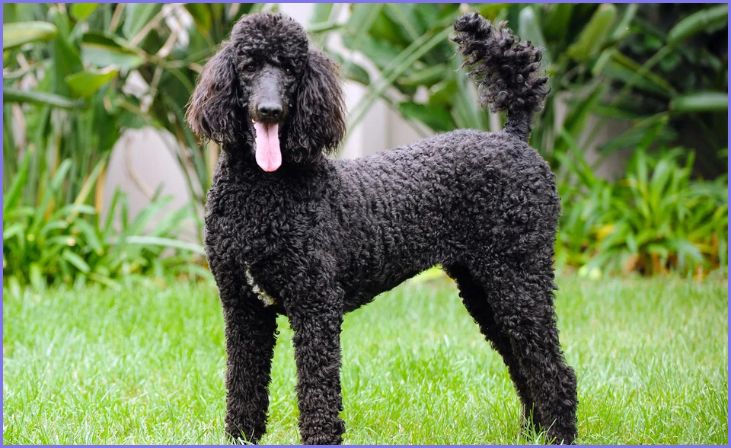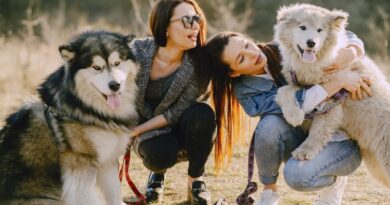For dog owners and enthusiasts, the intelligence of a canine companion is often a source of fascination and pride. Smart dogs not only make for quick learners but also become cherished family members who can adapt to various situations with ease. In our quest to understand and celebrate the intellectual prowess of our furry friends, we present “Top 10 Smartest Dog Breeds in 2023”
In this comprehensive guide, we’ll explore the breeds that consistently rank among the brightest, delving into their unique qualities, trainability, and the joys of having a highly intelligent dog by your side. Whether you’re considering adding a new member to your family or simply appreciate the remarkable capabilities of these four-legged geniuses, join us on this journey into the world of canine intelligence.
Smartest Dog Breeds
1. Border collie

Border Collies are often considered the smartest dogs in the world. They are known for their incredible problem-solving abilities and their keenness to learn new things. These dogs are super energetic and excel in activities like herding, agility, and obedience. They’re also famous for their intense focus and ability to understand complex commands. Border Collies are not just smart; they’re also very loyal and make fantastic companions for active families. They love to be challenged both mentally and physically, so if you’re looking for a clever and energetic canine friend, a Border Collie might be a perfect match.
Also Read: Toy Dog Breeds
2. Poodle

Poodles are incredibly smart dogs and come in three sizes: standard, miniature, and toy. These fluffy and friendly canines are known for their high intelligence and adaptability. They can learn tricks and commands quickly, making them excellent pets for families and individuals alike. Poodles are often seen participating in dog sports like agility and obedience trials, where they showcase their cleverness and agility. Despite their fancy appearance, Poodles are down-to-earth dogs and can make loving and loyal companions. Whether you have a lot of space or live in a smaller home, there’s a Poodle size to fit your lifestyle, and their intelligence will surely impress you.
3. Golden Retriever

Golden Retrievers are some of the friendliest and smartest dogs around. They’re known for their warm and gentle nature, which makes them excellent family pets. But what sets them apart is their intelligence and trainability. Golden Retrievers are quick learners and often excel in obedience training and fetching games, living up to their name as “retrievers.” In addition to being very intelligent, they are also incredibly loving and always willing to be by your side and offer you attention. If you’re looking for a smart, friendly, and loving dog to join your family, a Golden Retriever is an excellent choice.
4. Shetland sheepdog

Shetland Sheepdogs, often called Shelties, are small in size but big in brains. These little dogs are incredibly smart and agile. They love learning new tricks and tasks, and they often excel in agility and obedience competitions. Shelties are not just smart; they are also very loving and loyal to their families. They enjoy spending time with their human companions and are great playmates for kids. Their beautiful coats and charming personalities make them a delightful addition to any home. If you’re looking for a smart and affectionate small dog, a Shetland Sheepdog might be the perfect fit for you.
5. German Shepherd

German Shepherds are well known for their bravery, loyalty, and intelligence. These dogs are not only smart but also incredibly versatile. They’re often chosen for important jobs like police work, search and rescue, and helping people with disabilities. German Shepherds are quick learners and can pick up commands and tasks with ease. Despite their serious and protective appearance, they can be loving and gentle with their families. They’re excellent family pets and are especially good with children. If you’re looking for a smart, dependable, and loyal dog, a German Shepherd could be your ideal companion.
Also Read: Different Types of Mastiff Breeds
6. Doberman Pinscher

Doberman Pinschers are known for their intelligence and protective nature. These dogs are strong, sleek, and highly trainable. They are often used as guard dogs and excel in tasks that require both intelligence and strength. Despite their reputation, Dobermans can be loving and loyal family pets when properly trained and socialized from a young age. They are smart, confident, and quick learners, making them a great choice for those who want a smart and protective companion. With the right training and care, a Doberman can be both a loving family member and a dependable protector.
7. Labrador Retriever

Labrador Retrievers are known for their friendly and intelligent nature. They are some of the most popular dogs in the world, and for a good reason. Labradors are not only incredibly smart but also very versatile. They excel in various roles, from being wonderful family pets to serving as search and rescue dogs or even guide dogs for people who are visually impaired. Labs are quick learners and have an affectionate and gentle temperament, making them fantastic companions for families of all sizes. If you’re looking for a smart, loving, and adaptable dog, a Labrador Retriever might be the perfect addition to your home.
8. Papillon

Papillons are small dogs with big brains! These little pups are known for their intelligence and agility. They are quick learners and often participate in agility competitions, showcasing their remarkable abilities. Despite their diminutive stature, Papillons are enthusiastic and active. They are not just smart; they are also friendly and affectionate. Papillons love to be around people and make great companions for families and individuals alike. If you’re looking for a small, smart, and lively dog that will brighten your days with their intelligence and charm, a Papillon could be the perfect choice.
9. Rottweiler

Rottweilers are strong and smart dogs known for their loyalty and protectiveness. These dogs are not only intelligent but also loving and devoted to their families. They have a reputation as excellent guard dogs due to their protective instincts and quick thinking. However, with the right training and socialization, Rottweilers can be gentle and obedient companions. They’re quick learners and thrive in a structured and loving environment. If you’re looking for a loyal and intelligent dog that can be both a protector and a loving family member, a Rottweiler might be the perfect fit for your home.
Also Read: Guard Dog Breeds
10. Australian Cattle Dog

Australian Cattle Dogs, also known as Blue Heelers, are incredibly intelligent and energetic pups. They were originally bred to help with herding cattle, and their intelligence shines through in their problem-solving skills. These dogs are quick learners and thrive on mental and physical challenges. They’re not just smart; they’re also very loyal and protective of their families. Australian Cattle Dogs love to be active and require plenty of exercise and playtime to stay happy. If you’re looking for a smart, energetic, and devoted companion that can keep up with an active lifestyle, an Australian Cattle Dog might be the perfect choice.
Things to Consider Before Buying A Dog
Getting a dog is an exciting decision, but it’s essential to consider several factors before bringing a new furry friend into your life. Here are some things to ponder:
- Breed Compatibility: When thinking about getting a dog, it’s important to consider which breed is the right fit for you and your family. Different dog breeds have different personalities and needs. Some are very active and need lots of exercise, while others are more relaxed. Some breeds are great with kids, while others might be better for households with adults. It’s essential to choose a breed that matches your lifestyle and the environment you can provide. Think about the dog’s size, energy level, grooming requirements, and temperament.
- Time Commitment: Having a dog is like having a new family member. Dogs need daily care and attention, so it’s important to think about how much time you can dedicate to them. Dogs require feeding, exercise, grooming, and love every day. Depending on the breed, some dogs need more time and activity than others. Puppies, in particular, need lots of training and socialization. It’s essential to be sure you have enough time to meet all these needs before bringing a dog into your life.
- Financial Responsibilities: Having a dog involves financial commitments. Dogs need things like food, regular vet check-ups, grooming, and supplies like leashes, toys, and a comfortable bed. You also need to be prepared for unexpected medical expenses if your dog gets sick or injured. It’s important to have a budget in place to ensure you can provide for your furry friend’s needs. Dogs can bring immense joy to your life, but it’s essential to make sure you have the financial means to take care of them properly.
- Space: Dogs come in various sizes, and the space you have at home can be a crucial factor. Larger breeds may need more room to move around, while smaller breeds can be comfortable in smaller spaces. Consider your living situation and whether your home is suitable for a dog. Make sure there’s enough space for your furry friend to play, explore, and have a comfy spot to rest.
- Allergies: Before bringing a dog into your home, it’s essential to consider allergies. Some people are allergic to dogs, and being around them can cause sneezing, itching, and other discomforts. If you or anyone in your household has allergies, spend time with dogs to see if allergies might be a problem. Some dog breeds are hypoallergenic, which means they are less likely to trigger allergies, but it’s important to remember that no dog breed is entirely hypoallergenic.
- Long-Term Commitment: Bringing a dog into your life is a long-term commitment, often spanning a decade or more. Dogs become an integral part of your family, and they rely on you for their well-being and happiness throughout their lives. This commitment includes providing love, care, and stability, even as your life circumstances change. Before getting a dog, think about how your future may evolve, including moves, job changes, or starting a family.
- Training: Training is a crucial part of having a happy and well-behaved dog. Dogs, regardless of their breed, need guidance and rules to understand how to fit into our human world. It’s essential to start training early, teaching them commands like “sit,” “stay,” and “come.” Positive reinforcement, like treats and praise, can make training enjoyable for your dog. Smart dog breeds, in particular, thrive on learning new things, so training sessions can be fun and mentally stimulating for them.
- Healthcare: Just like people, dogs need regular healthcare to stay happy and healthy. This includes routine vet visits for check-ups, vaccinations, and preventive care. It’s essential to provide your dog with a balanced diet, regular exercise, and a clean living environment. Pay attention to their dental health, as dental problems can lead to other health issues.
Conclusion
Intelligence in dogs comes in various forms, and the top 10 smartest dog breeds represent a range of personalities and abilities. While breed can provide a general idea of a dog’s intelligence, individual variation plays a significant role. Regardless of the breed, every dog has the potential for learning and companionship. By providing the right training and mental stimulation, you can help your canine friend reach their full potential and enjoy a fulfilling life as a cherished member of your family.
FAQs
Yes, smart dog breeds tend to be more trainable and responsive to commands. They often learn quickly and enjoy mental challenges.
Breeds like Golden Retrievers, Labrador Retrievers, and Border Collies are known for their intelligence and family-friendly nature.
Yes, smart dogs thrive when they have mental stimulation and activities that challenge their intellect. Puzzle toys, training, and interactive games are great for them.
Intelligent dogs can become bored easily if not mentally engaged, which can lead to behavioral issues. They may also require more exercise and attention.
Yes, some smart breeds can be suitable for first-time owners, provided they are committed to training and socialization. Breeds like Labrador Retrievers and Golden Retrievers are often recommended for beginners.







